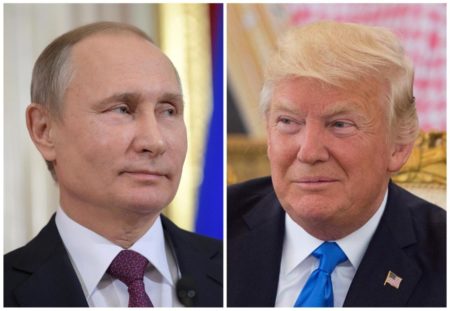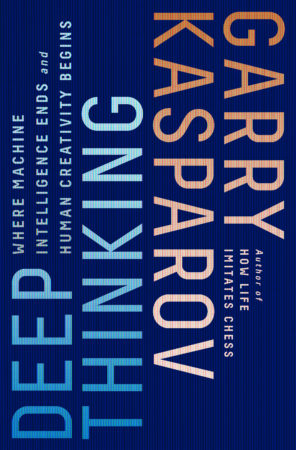by Garry Kasparov
READ ORIGINAL ARTICLE AT THE WASHINGTON POST
 Last week, the Senate and the House approved tough new sanctions targeting Russia for its aggression in Ukraine and its cyber-meddling in the 2016 U.S. presidential election. Lawmakers included provisions to prevent President Trump from overriding the legislation. Trump signed the bill on Aug. 2, while making his displeasure clear. In this he was immediately joined by Russian Prime Minister Dmitry Medvedev, who took to Trump’s favorite medium to bait the easily baited Trump by tweeting that Congress had “humiliated” him. It was a perfect way to flatter the would-be autocrat Trump: “If only you had total control in America like Vladimir Putin does in Russia!”
Last week, the Senate and the House approved tough new sanctions targeting Russia for its aggression in Ukraine and its cyber-meddling in the 2016 U.S. presidential election. Lawmakers included provisions to prevent President Trump from overriding the legislation. Trump signed the bill on Aug. 2, while making his displeasure clear. In this he was immediately joined by Russian Prime Minister Dmitry Medvedev, who took to Trump’s favorite medium to bait the easily baited Trump by tweeting that Congress had “humiliated” him. It was a perfect way to flatter the would-be autocrat Trump: “If only you had total control in America like Vladimir Putin does in Russia!”
Medvedev’s remarks echoed those of Trump and the president’s cheerleaders on Fox News. This chorus likes to portray Trump as a hostage of Congress and various “domestic enemies” holding him back from making America (and Russia) great again. The underlying message is distinctly authoritarian: If only the leader had total control, everything would be better for the country and the people.
I interpret Medvedev’s tweets, which were in English as well as Russian, as a mafia-style warning from Putin’s consigliere, a 140-character horse’s head in the president’s bed to remind Trump of his obligations, whatever they may be. Trump certainly seemed to respond that way. Twenty-four hours later, he was repeating his “Russia hoax” talking points at a rally in West Virginia.
What Trump did not mention, and has yet to acknowledge, is how Putin has responded to the sanctions – by ejecting 755 personnel from American diplomatic service in Russia. This is a huge number, one that includes many local Russian personnel, not just American diplomats and staff. (Remember: President Barack Obama expelled only 35 Russian diplomats when he moved to retaliate against Moscow’s mischief in December 2016.) The first notable result will be severe limitations in the ability of Russians to obtain visas for the United States. As usual, Putin’s idea of sanctions is to punish Russians.When the 2012 Magnitsky Act legislation put pressure on state human rights abusers in Russia, Putin responded by banning the adoption of Russian orphans by U.S. families. When Obama finally levied sanctions on Russia over Putin’s 2014 invasion of Ukraine and annexation of Crimea, Putin responded by banning many imported foodstuffs. His officials even made a show of destroying piles of food in a country where millions struggle to put adequate food on the table. As the Russian joke goes, “If America bombs Syria, Putin will retaliate and bomb Voronezh!”
It seems bizarre for a leader to inflict hardship on his own people, especially when Russia is already collapsing after 17½ years of Putin’s kleptocracy and oil prices that have stayed low for nearly three years. But Putin doesn’t care about the welfare of the Russian people and never has. Even so, he has to find excuses for why everything is so bad despite so many years of his unchallenged rule. The method he has chosen is to create enemies, the stronger the better, in order to create a narrative of Russia being on a wartime footing that necessitates sacrifice and, of course, total devotion to the great leader who is fighting so hard to defend the motherland.
Some proponents of engagement with Moscow argue that sanctioning Putin merely plays into his hands. Yet this is a myth. No amount of appeasement is going to turn Putin into an ally of the free world, at least not if the free world is going to live up to that name. Putin will not stop until he is stopped, and that won’t happen until his gang sees him as an obstacle to maintaining its wealth and power instead of as an asset. Sanctions that strike at the gang’s investments abroad are an excellent way to do that.
It’s important to understand that Putin doesn’t care if Trump wins his fights with Congress and the courts. Putin wants Trump to go right on sowing chaos and division in the only nation on Earth that could single-handedly cripple his hold on power in Russia. This explains why the Kremlin’s trolls are currently working hard to support the alt-right campaign against the most capable person in the White House, national security adviser H.R. McMaster. McMaster has no illusions about the threat Putin represents, and Putin knows it is much easier to manipulate people who are looking out for themselves, not the greater good of the country.
It’s not yet time for Putin and Trump to end their romance. Trump is still the Kremlin’s best hope for creating havoc in Washington and damaging American credibility abroad. Trump is still unable to criticize Putin, partly because his ego prohibits him from acknowledging that hacking by a hostile foreign power helped him get elected. Trump and Putin may not have the same agenda, but they do share at least one goal: to put as much power as possible into Trump’s hands.
Garry Kasparov, a Russian pro-democracy activist, and former world chess champion, is the chairman of the Human Rights Foundation based in New York City. He is the author of “Winter Is Coming: Why Vladimir Putin and the Enemies of the Free World Must Be Stopped.” Follow @Kasparov63


